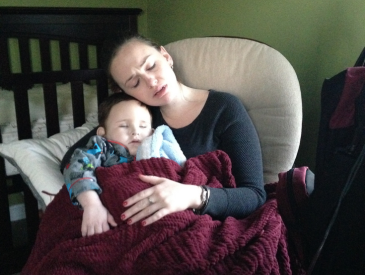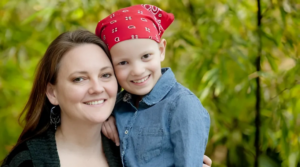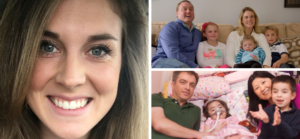End of Life Considerations
Even with advance planning, the actual prospect of their child’s end of life can surface new and intense anticipatory grief in parents (and other family members too). While hope is always a part of the care plan, that hope can change shape as a child’s condition and/or prognosis shifts. It is normal to experience anxiety, confusion, anger, guilt and frustration. The goal is to benefit from insights and practical information that shine a light on the unimaginable and unknown.

Your Team:
A member of the clergy who is responsible for the religious needs of an organization and/or its constituents.
A mental health professional who specializes in bereavement and loss.
Specialized care for people whose prognosis is measured in months instead of years, and the desire is to focus on comfort.
A specialist whose aim is to improve the quality of life of their patients over the course of their illness regardless of stage, by relieving pain and other symptoms of that illness.
A medical professional who practices general medicine.
A mental health professional who uses therapy and other strategies to support coping and adjustment and treat concerns regarding social, emotional, or behavioral functioning.
A trained professional who works with people, groups and communities to help them better their lives.
An individual who leads and/or guides individuals or groups coping with life experience and challenges.
A psychologist, social worker, chaplain and/or spiritual leader can help you, your co-caregiver, and other family members (including your child and siblings, if appropriate) to identify any fears, issues, and concerns, either together or separately. Your child’s primary physician, who likely knows your child and family well, can be an important resource in addressing your questions. A palliative care clinician or hospice team can support you and your child in processing strong emotions and attending to your family’s wishes. A grief counselor can be especially helpful before or after the death of your child.
Some parents express fear that they will not be able to survive their child’s death, while at the same time they want to be strong for their child, their co-parent if there is one, and other family members including siblings. (If they have been close to members of the clinical team, parents may even want to be strong for the clinicians. This is not something that clinicians expect or need.)
And some try to avoid the prospect of death entirely.
All to say, reactions may be strong and the dynamics may be complicated, and some things can’t be anticipated. This is a time to be gentle with yourself, and with others around you. As you probably have discovered along the way, each person responds to stress—and hope—differently. If you have done some advance planning, you may already be familiar with some of the subjects you will now be asked to consider and the decisions you will be asked to make. Many of these can be found in the CPN guides “End of Life Part 1: Planning” and “End of Life Part 2: What to Expect,” which provide details and perspectives on some of the most difficult topics. The section Siblings at End of Life may also be helpful.
And if you are having difficulty managing your feelings, or communicating with others about your feelings, professional support from a member of the palliative care team, a therapist or spiritual leader can be extremely helpful. If you don’t currently have these services, you can ask for palliative care and/or hospice care. These are professionals trained to guide you and help you feel confident that you are doing the very best you can for your child and family.
– Meredith, parent of Hannah



